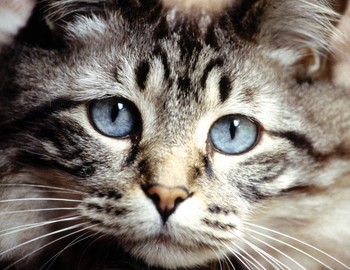Jul 28 2005
According to British and U.S. scientists cats may like ice cream, but it is not the sugary taste that appeals to them, because they are genetically unable to taste sweet flavors.

Apparently all cats have a slightly different version of the sweet receptor gene than other mammals, and as any cat owner knows cats have individual preferences, but will all turn their noses up at sugary treats that do not contain some other ingredient such as butter or gelatin.
Xia Li, a molecular geneticist at Cornell University who helped lead the study, says a possible explanation is that felines are unable to detect sweet-tasting compounds like sugars and high intensity sweeteners because their sweet taste receptor is defective.
To confirm this theory, say the research team, the obvious place to look is at the genes coding for the sweet-taste receptor.
When they did this they discovered that mammals taste sweet flavors via a receptor, a kind of molecular doorway, called T1R on their taste bud cells, which has two subunits, known as T1R2 and T1R3, and each is coded for by a separate gene.
Li and colleagues say they found a change in the gene encoding the T1R2 protein in domestic cats, tigers and cheetahs, and other than this sweet blindness, the cat's sense of taste is normal.
Joseph Brand, a biophysicist at Cornell who worked on the study, says this non-functional sweet receptor provides a molecular explanation for why cats have no liking for sweets, and demonstrates the importance that this molecular change had on the evolution of the cat's carnivorous behavior.
The question is however which came first carnivorous behavior, or the loss of the T1R2 protein? and regarding the gene, was this a case of use it or lose it!
Many animals in the carnivore family, including bears, dogs, raccoons and others, like sweet things.
Brand says is it any wonder cats are cranky; they have to hunt for their food, but can't enjoy dessert!
The study is published in the online journal Public Library of Science Genetics.